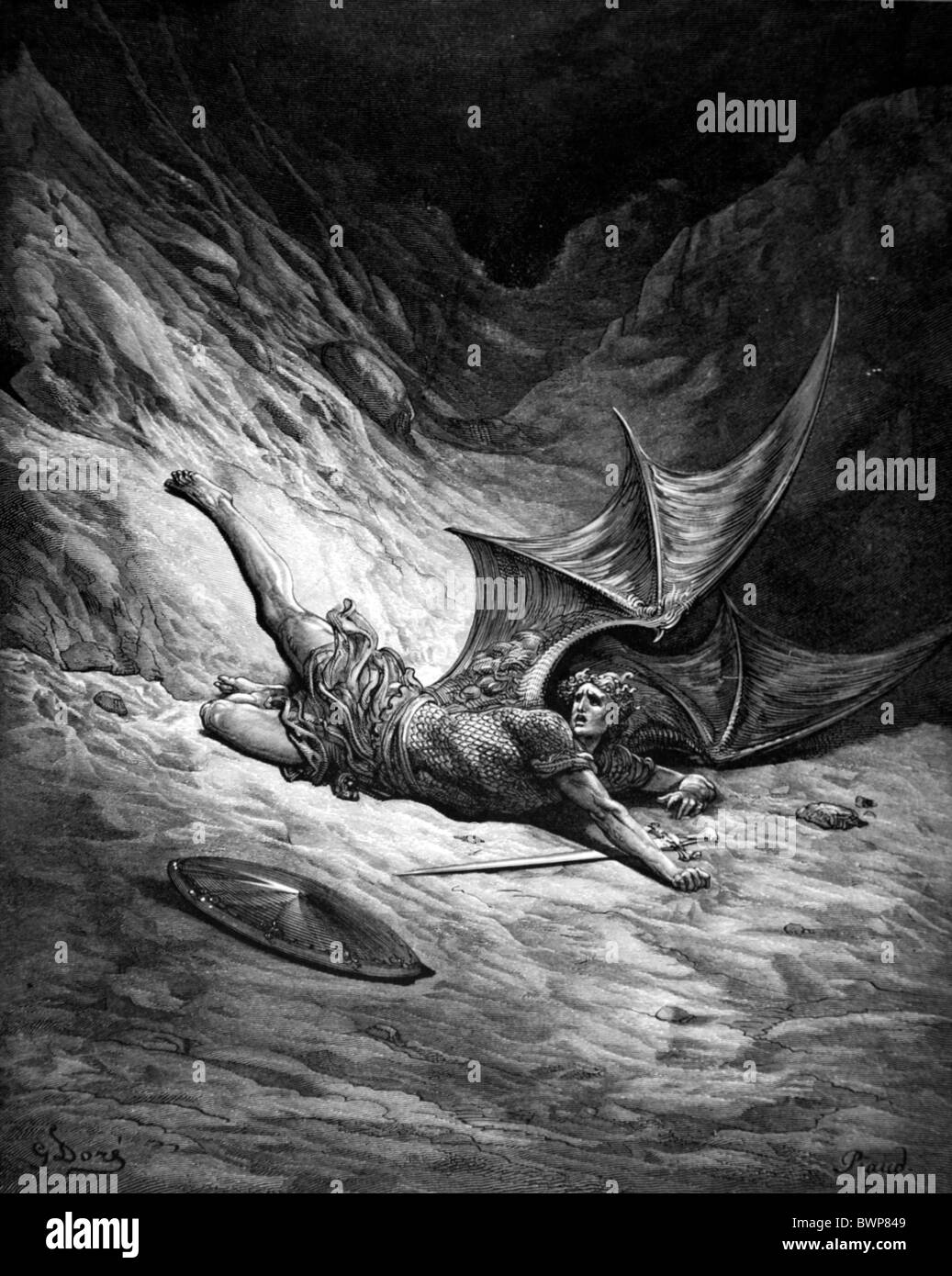

Therefore, this soliloquy has crucial narrative purpose-as opposed to being a straightforward lament.Milton’s Satan is charismatic, but Milton consistently shows his cause to be unjust. Yet by admitting his own guilt, and confessing his feelings of despair and regret, he is supplicating God and the Son of God-which ultimately allows the Son of God to be merciful to him and Eve, and decide to sacrifice himself to redeem humankind. The soliloquy ends with Adam asking for death: he feels that his life is irredeemable. His allusion to "increase and multiply" may also refer to the impact of original sin on his offspring-that is, that any children he and Eve conceive will bear the same "curse" they've brought upon themselves. Here, though, he grapples with his own guilt-realizing that he has not only disobeyed God's prohibition about the Tree of Knowledge, but also made it impossibly to "increase and multiply," as God has commanded him to do: he cannot joyfully reproduce with Eve, whom he views as a traitor. This is the longest soliloquy in the poem-previously, Adam has spoken to Eve in shorter monologues, and has not really expressed any complicated emotions or thought processes. Her decision to eat the fruit has been thought-out and carefully considered, even if it is based on misleading temptation. Though the reader is not always meant to sympathize with Eve, given the disastrous consequences of her transgression, this long soliloquy makes clear that Eve is thoughtful, curious, and reasonable-not simply rash and foolhardy. Eve wants to reconcile what she already understands about the Tree-that "God hath pronounced it death to taste that Tree," as Adam reminds her-with what Satan has just told her: that the Tree's fruits have miraculous effects. Unlike Satan, whose use of logos amounts to sophistry-a disingenuous argument intended to trick Eve-Eve is genuinely attempting to puzzle out why God might have placed this prohibition on her and Adam. The fruit is so "good" that were she and Adam to know and enjoy its goodness, they would "want" it too badly thus, God has prohibited them from eating the fruit in order to preserve it.Įve also notes the Tree of Knowledge's ambiguous name, concluding that the fruit may not necessarily be harmful. The name suggests "knowledge both of good and evil," she says, which means that the fruit itself could confer divine knowledge of "good." Moreover, Eve reasons that God's "forbidding," paradoxically, "commends" the fruit more. For Eve, this serves as evidence to justify her decision to seize the fruit: the serpent has not been punished for his decision, and therefore, Eve assumes she won't be, either.

This inference is borrowed from Satan's own argument to Eve, in which he pretends that the fruit has given him the ability to speak. This soliloquy-like another Satan soliloquy later in Book 4, after he spots Adam and Eve and experiences "love" for them-becomes a vehicle for Satan to work out and articulate his complicated emotions, while instructing himself to shore up courage and carry out his plot in Eden.Įncouraged by Satan, Eve reasons that the fruit must be good, "though kept from man," because it miraculously conferred speech upon a formerly "mute" serpent. Paradoxically, Satan likens the "Hell" he is suffering to "a Heav'n"-harkening back to what he has told Beelzebub earlier (in Book 1: "the mind is its own place, and in itself can make a heav'n of hell, a hell of heav'n"), as if to remind himself that he must accept his confinement in Hell, and attempt to seize power during his exile, treating Hell as if it were a Heaven. This soliloquy shatters the reader's prior expectations for Satan, humanizing him as a character: as a tragic, multi-dimensional hero, he is not purely evil, but experiences chagrin and self-doubt, too. Previously, Satan has seemed ebullient and confident-proud of his decision to defy God and rebel against Heaven-but as he reaches Paradise, he begins to experience regret: not merely because he has been cast out of Heaven and lost God's favor, but because he feels he is "Hell" himself: irredeemably evil.


 0 kommentar(er)
0 kommentar(er)
